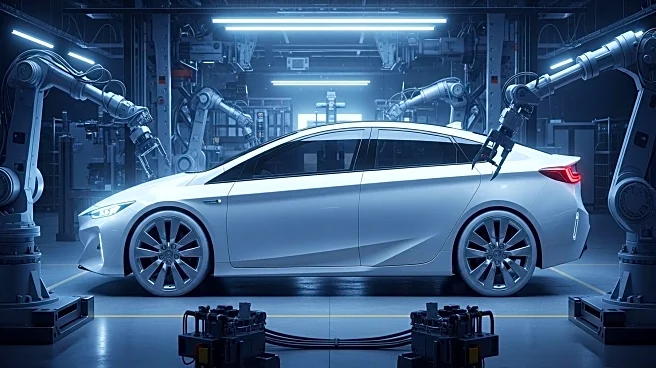What is the story about?
What's Happening?
Volvo Cars has announced plans to produce a new next-generation hybrid model at its Ridgeville, South Carolina plant by 2030. This decision comes as the company faces pressure from tariffs imposed by President Trump, which have affected its supply chain. The Ridgeville plant, located near Charleston, is seen as a key component of Volvo's strategic growth plan in the U.S. According to Luis Rezende, president of Volvo Cars Americas, the addition of this model will help maximize the potential of local manufacturing investments and workforce, while accelerating progress towards commercial targets. Currently, the plant produces the fully electric EX90 SUV and the luxury electric Polestar 3. Volvo aims to phase out non-electric models by 2030, although it has recently decided to retain hybrid models in its lineup.
Why It's Important?
The move to produce a hybrid model in the U.S. is significant for Volvo Cars as it navigates the challenges posed by tariffs on imported vehicles. With a 27.5% duty on foreign cars, the company is seeking to mitigate these costs by increasing local production. This strategy not only supports Volvo's growth in the U.S. market but also strengthens its position in the competitive automotive industry. By investing in local manufacturing, Volvo can better manage supply chain disruptions and align with its sustainability goals. The decision to retain hybrid models reflects a balanced approach to transitioning towards electric vehicles, catering to diverse consumer preferences and regulatory requirements.
What's Next?
Volvo Cars plans to start producing its popular XC60 mid-size SUV at the South Carolina plant by late 2026. The company is also expected to begin production of the next-generation XC90 hybrid model, further expanding its U.S. manufacturing capabilities. As Volvo continues to adapt to tariff pressures, it may explore additional strategies to enhance its supply chain resilience and market presence. Stakeholders, including political leaders and industry competitors, will likely monitor Volvo's progress and its impact on the U.S. automotive landscape.

















